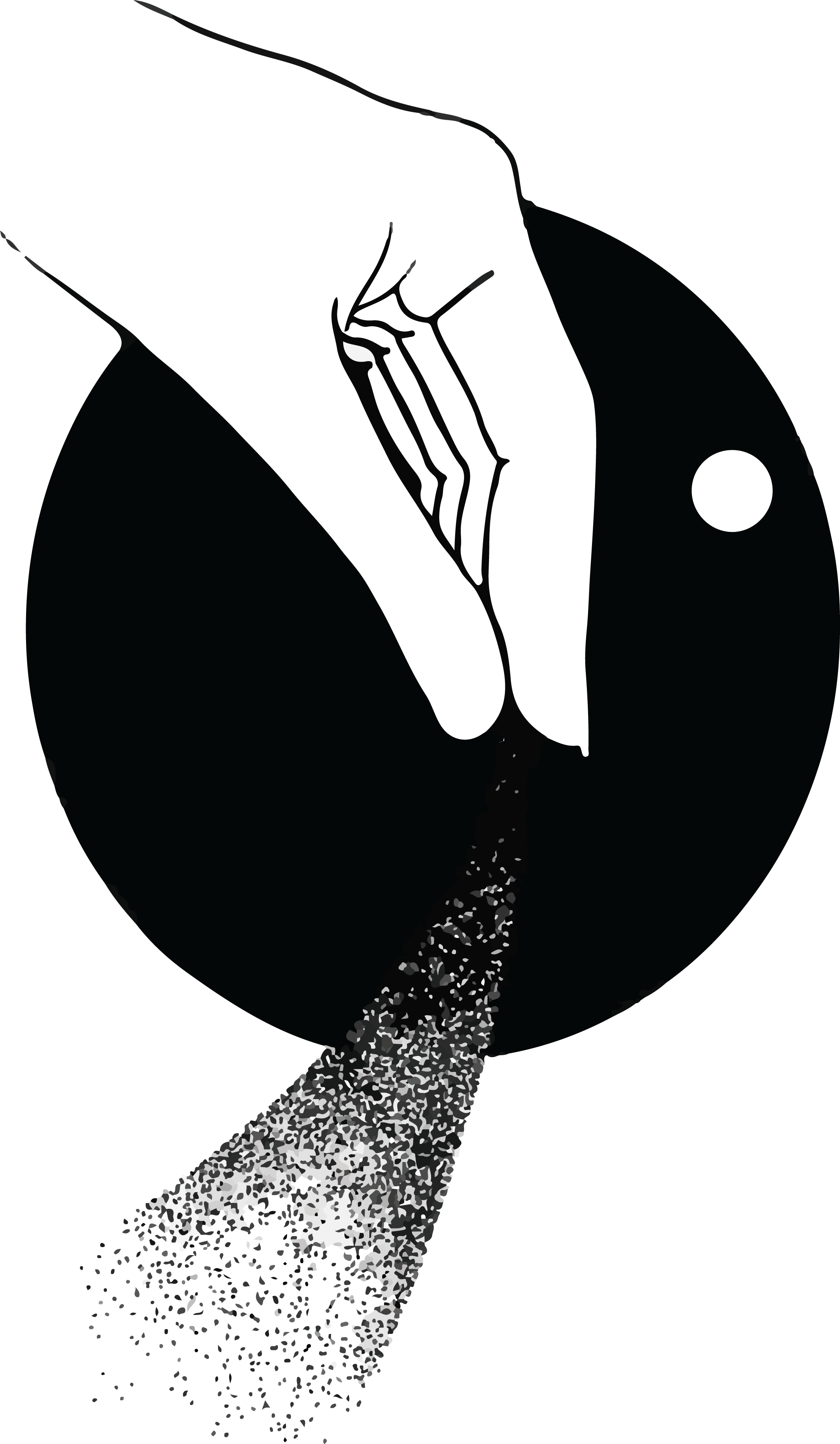
Me:You
American Dreams Releases:
Field Tapes in der Trash
From the co-founders of Mourning [A] BLKstar, Field Tapes in Der Trash is the brainchild of RA Washington, who leads the group, and LaToya Kent, who sings in it. Here, Washington sets Kent's vocals to music, with help from longtime collaborators Jah Nada and Laura B. The result dunks music in a swirling brew of drum beats, guitars, bass, synth, and tape loops, revealing an immersive world that only Me:You could create.
Field Tapes in Der Trash is punk in spirit and in its realization, but it’s playful, too. The title toys with field recordings as a concept, like one might wipe dust off of a once-lost CD, and the music jars genres out of their constraints. “I wanted it to feel like a punk record,” Kent says, “but I wanted it to also feel natural. We wanted to make our heads nod and we wanted it to sound dirty as fuck.” As the group’s collaboration developed, tapes, strings, synths and kit intermingled with each other, smearing the fingerprints of its producers. Perhaps as a result, the music is enigmatic and quietly insistent: hazy, woozy, hot, rhythmic and tangled with grit.
There’s space for the profane as well as the sacred. Take the subtle repetition of songs like “the current history of blue” or “Portabelly,” which throw punk and R&B into a blender and press ‘record’ while the motor slows. If “Gimlet” feels a bit like the auditory equivalent of deep-frying a rock band, then “Dirt” excavates and repurposes that band’s tools, as Kent’s impassioned vocals recall aging rockers of yesteryear. The distant acoustic guitars of “Antiquity” undergird vocal melismas that almost suggest devotional music, but feel too intimate to be considered as such. “Sugamilk” features muted trumpet and low groove, daubing it with jazz accents. Here and on “Gimlet,” Kent’s vocals gently echo, which gives the effect of simultaneously feeling connected to their instrumentals even as each component moves in its own rhythm, consequences be damned.
Kent’s lyrics are flashes of love, defiance, openness, freedom. In light of field recordings, they present as assemblages. “There is this youthful longing that doesn’t go away as you age. When you are young you think it will, but it never does,” Kent says. “It just actually grows into an even more vivid color. That longing, that burn.” Kent’s lyrics are often bold: “You can’t be afraid to choose,” she sings on “Portabelly,” “never be afraid to lose.” On “Burns,” she beckons the listener into another world, singing, “I’ve got a little magic in my pocket.” Fast-forward to “Crawl on yer belly,” where her lyrics pivot from the personal to the collective and back again, and she asserts—repeats—”we are the earth.”
“When you feel it all,” the pair says, “everything shows up in the story. The narrative wild and pulsing with its own blood. The stage a display of interpretation moving with those that witness it.” This is how Field Tapes in Der Trash works: bringing a space for the listener to live in, tracking its changes, walking to its groove.
Field Tapes in Der Trash is punk in spirit and in its realization, but it’s playful, too. The title toys with field recordings as a concept, like one might wipe dust off of a once-lost CD, and the music jars genres out of their constraints. “I wanted it to feel like a punk record,” Kent says, “but I wanted it to also feel natural. We wanted to make our heads nod and we wanted it to sound dirty as fuck.” As the group’s collaboration developed, tapes, strings, synths and kit intermingled with each other, smearing the fingerprints of its producers. Perhaps as a result, the music is enigmatic and quietly insistent: hazy, woozy, hot, rhythmic and tangled with grit.
There’s space for the profane as well as the sacred. Take the subtle repetition of songs like “the current history of blue” or “Portabelly,” which throw punk and R&B into a blender and press ‘record’ while the motor slows. If “Gimlet” feels a bit like the auditory equivalent of deep-frying a rock band, then “Dirt” excavates and repurposes that band’s tools, as Kent’s impassioned vocals recall aging rockers of yesteryear. The distant acoustic guitars of “Antiquity” undergird vocal melismas that almost suggest devotional music, but feel too intimate to be considered as such. “Sugamilk” features muted trumpet and low groove, daubing it with jazz accents. Here and on “Gimlet,” Kent’s vocals gently echo, which gives the effect of simultaneously feeling connected to their instrumentals even as each component moves in its own rhythm, consequences be damned.
Kent’s lyrics are flashes of love, defiance, openness, freedom. In light of field recordings, they present as assemblages. “There is this youthful longing that doesn’t go away as you age. When you are young you think it will, but it never does,” Kent says. “It just actually grows into an even more vivid color. That longing, that burn.” Kent’s lyrics are often bold: “You can’t be afraid to choose,” she sings on “Portabelly,” “never be afraid to lose.” On “Burns,” she beckons the listener into another world, singing, “I’ve got a little magic in my pocket.” Fast-forward to “Crawl on yer belly,” where her lyrics pivot from the personal to the collective and back again, and she asserts—repeats—”we are the earth.”
“When you feel it all,” the pair says, “everything shows up in the story. The narrative wild and pulsing with its own blood. The stage a display of interpretation moving with those that witness it.” This is how Field Tapes in Der Trash works: bringing a space for the listener to live in, tracking its changes, walking to its groove.

